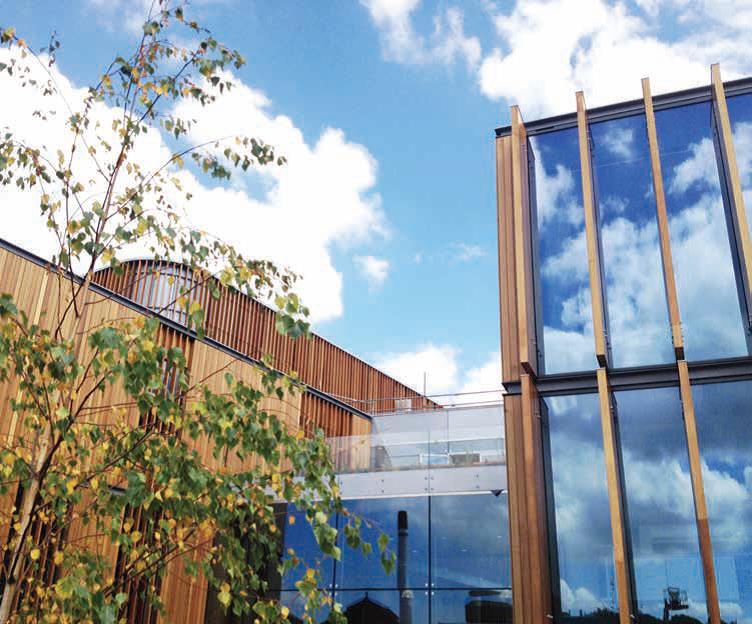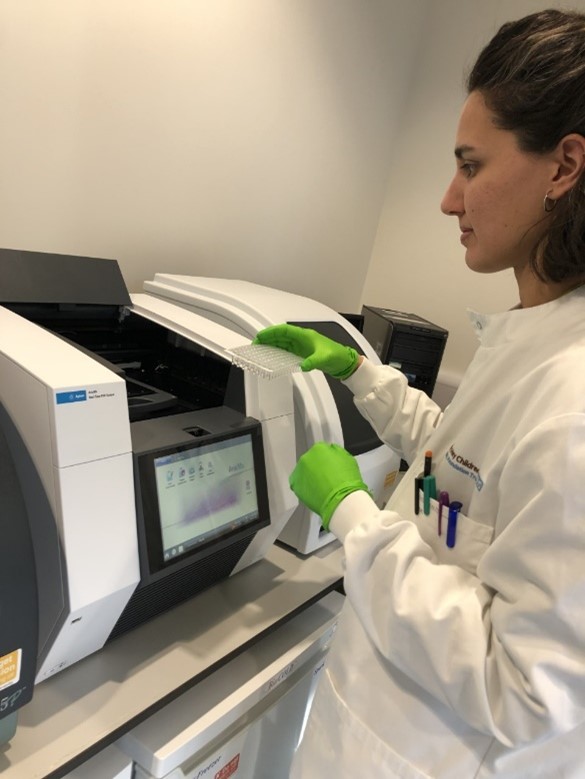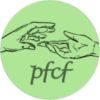What has been happening at the Institute in the Park? We made our first grant in October 2016 and our latest in July 2022 to purchase an AriaMx Real-Time PCR System. The Institute became a Partner Charity in January 2021 and we are delighted to be supporting their work. We asked Dr Karen Rafferty, EATC4Children Operations Manager, to bring us up to date on the team’s research.

“The Child Health laboratory programme at University of Liverpool and Alder Hey Children’s NHS Foundation Trust centrally includes the Experimental Arthritis Treatment Centre for Children (EATC4Children), an experimental medicine centre that works for and with children to improve their wellbeing and quality of life. The Child Health Programme is dedicated to unveiling mechanisms of disease, testing new treatment candidates, looking for new disease biomarkers, and performing early phase clinical trials. Exploring molecular and cellular disease mechanisms will result in earlier diagnosis, timely introduction of efficient treatments, and the development of individualized and target-directed therapies with reduced side effects.
The AriaMx Real-Time PCR System has made a big difference to our work. This piece of equipment allows measurement of the levels of different gene products, for example in model cells and cells isolated from tissues or blood. This enables us to compare, for example, cells from healthy children to those from patients with inflammatory diseases, to identify disease mechanisms.

Francesca Sposito, a PhD student, has used the AriaMx Real-Time PCR System to investigate if, and how, age and vitamin D levels play a role in SARS-CoV-2 viral infection that is responsible for COVID-19. This image was obtained using the new AriaMx Real-Time PCR System. The equipment produces detailed images that are critical to study the effect of , in this case, vitamin D. The plot shows different levels of the candidate gene when the airway epithelial cells were treated or not with vitamin D.
Francesca measured virus copy numbers and the levels of different gene products in airway epithelial cells treated with vitamin D. Airway epithelial cells are used as a model for lung cells to study airway infections. A number of genes potentially responsible for different levels of response to SARS-CoV-2 have been identified.

For some of her experiments, Francesca used the Chemidoc system to acquires high-quality images of both nucleic acids (DNA and RNA) and proteins. Francesca is now writing a scientific paper to report two newly identified genes responsible for viral entry and involved in differential immune responses to viruses between children and adults. Her results bring the scientific community one step closer to identifying the mechanisms of SARS-CoV-2 infection and how we can prevent infection and improve disease outcomes.
The facilities at the Institute in the Park laboratory represent a state-of-the-art environment for scientific research that allows young scientists to flourish and develop into independent academics. Every week, the EATC4Children recruits patients and processes samples collected within the scope of different studies. This provides a large biorepository and a solid foundation for scientific studies, leading to publications, presentations, and further funding.
The work of the Child Health Programme, of which Francesca’s work is one example, is only possible with the support of Versus Arthritis, University of Liverpool, Alder Hey Children’s Charity and support and donations from several partner charities and foundations, including ongoing support from the Parry Family Charitable Foundation”.
In total the Foundation has now donated more than £60,000 to the research programme to equip the lab within the Institute in the Park. Being a Partner Charity means we will be supporting them over the long term. The relationship continues to deepen and the match between the Foundation and the Institute could not be better. Their work is important and we are here to help.
